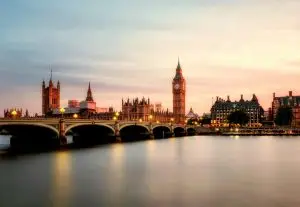Brevia Energy has been tracking the Government’s delivery of its key energy manifesto commitments through an online tracker. Brevia Energy’s exploration of Labour’s Energy Achievements can be read here, and our article on Labour’s nuclear progress can be read here. This article, the second in a three-part series, explores the challenges and opportunities within Labour’s plans for decarbonising transport, emphasising the need for clarity and ambition in identifying how transport fits into the Government’s clean power plans.
Biofuels
Since taking office, the Government has taken steps to address aviation emissions and provide more certainty to the Sustainable Aviation Fuel (SAF) industry. The Sustainable Aviation Fuel Mandate, implemented on 1 January, and Transport Secretary Heidi Alexander MP’s recent announcement of a £63 million investment in the Advanced Fuels Fund for 2025-26, provide some certainty for SAF producers. However, debates continue over SAF’s environmental benefits, particularly in comparison to plans for a potential new runway at Heathrow.
The prospect of approving a new runway raises questions about the Government’s ability to balance its commitments to economic growth and clean energy. While no detailed analysis on the environmental impact of a new exists, environmental campaigners have raised alarm bells.[1] Energy Secretary Ed Miliband recently told the Environmental Audit Committee that any aviation expansion must align with the UK’s carbon budgets, though how this will be achieved remains unclear.[2]
It is notable that beyond SAF, the Government has given limited attention to the broader biofuels sector and their potential role in transport. Biofuels frequently arise in parliamentary written questions, and companies such as Drax have been the subject of multiple recent Select Committee discussions. However, the Government’s primary focus on biofuels within the context of transportation clarifies its prioritisation of this sector for the industry, with other uses such as heating having more popular alternatives, such as heat pumps.
Electric Vehicles
Despite domestic transport accounting for 29 per cent of UK emissions,[3] transport decarbonisation has received very little attention in the first few months of the Labour Government. With the Clean Power 2030 target currently driving energy policy, much of the focus has been on generation and the power system.
Labour’s pledge to accelerate the rollout of EV charge points has seen limited advancement and the Government is only now beginning to grapple with the key barriers to delivering new EV charging infrastructure, including grid constraints, high standing charges, and fostering demand for public charging.
On Christmas Eve 2024, the Office for Zero Emission Vehicles (OZEV) published a policy paper outlining steps to improve grid connections for EV charging infrastructure. The paper identified seven action areas, setting out key barriers and proposed actions to address these, critically only on a voluntary basis. including some of the key barriers identified, and proposing a series of actions to be taken forward on a voluntary basis. It remains to be seen how effectively these recommendations will be implemented and whether they will significantly enhance EV charging infrastructure.
In the Autumn Budget, the Government confirmed its intention to progress with the 2035 phase out date on the sale of new combustion engine vehicles, while allowing a small number of hybrids to remain on sale until 2035. The Transport Secretary has since launched a consultation seeking industry views on achieving the 2030 target, with the consultation closing on 18 February. This presents a critical opportunity for those in the automotive industry to put forward their views and concerns, particularly following the Government’s commitment to review the zero emissions vehicle (ZEV) mandate will be reviewed – a move that came following concerns from car manufacturers about meeting the required targets.[4]
Conclusion
Labour’s approach to transport decarbonisation is beginning to take shape, but questions remain over its clarity and ambition. While initial steps have been taken to support SAF and EV infrastructure, significant challenges persist. The Government will need to provide stronger policy direction and greater investment if it is to meet its clean power commitments while balancing economic growth and environmental sustainability.
Brevia Energy is a dedicated division of Brevia Consulting, and has a longstanding reputation for its expertise and experience in the Energy Sector. Discover how Brevia Energy can help you and your organisation by visiting: www.brevia.co.uk/sectors/energy/. You can also contact the Brevia Energy Team on 020 7091 1650 or email contact@brevia.co.uk.
Links
[1] ‘What would Heathrow third runway mean for pollution, emissions and noise?’ The Guardian, 29 January 2025, Link
[2] ‘Heathrow expansion ‘won’t go ahead’ if it doesn’t meet climate targets, Ed Miliband says’ Sky News, 27 January 2025, Link
[3] ‘2023 UK greenhouse gas emissions, provisional figures’, Department for Energy Security and Net Zero, 28 March 2024, Link
[4] ‘Labour poised to water down electric car rules amid crisis in industry’ The Telegraph, 26 November 2024, Link




